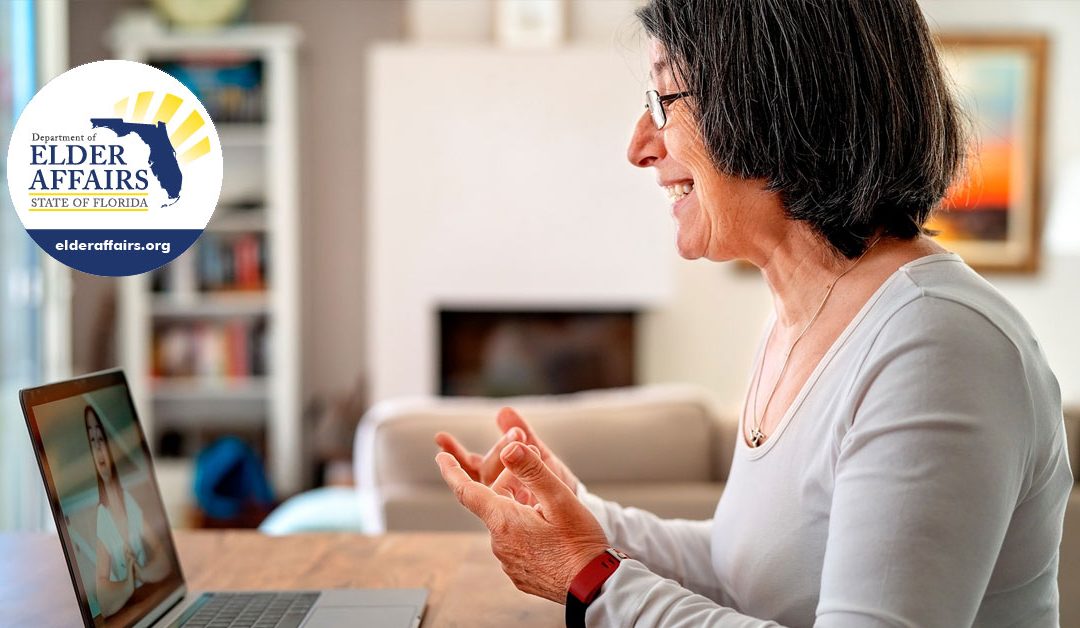FROM TALLAHASSEE TO YOU
Florida Department of Elder Affairs
Message from Secretary Richard Prudom
 November 11 marks Veterans Day across our great nation. Floridians have a rich history of military service, and our state is one of the most military and veteran friendly in the U.S. There are more than 1.5 million veterans living in Florida – the third largest veteran population in the country!
November 11 marks Veterans Day across our great nation. Floridians have a rich history of military service, and our state is one of the most military and veteran friendly in the U.S. There are more than 1.5 million veterans living in Florida – the third largest veteran population in the country!
Nearly 52 percent of Florida’s veterans are over the age of 65, and they have served in World War II, the Korean War, the Vietnam-era, the Gulf War, and post-9/11 – the War Against Terrorism.
Florida veterans have a wealth of knowledge and experience to share with younger generations. Stories of service may find a venue in print, on television, or through special programs that host dialogues among veterans, adults, and youth. When an intergenerational exchange of ideas does happen, participants often express feeling a deeper connection with some of the people involved. If the right opportunity does present itself, I hope stories may indeed be shared.
Truly, the dedication and selflessness of our veterans is unmatched. Service men and women stepped forward to defend freedom and the principles of America when needed. While Veterans Day is just one day, it stands to symbolize commitment and service to country. Veterans Day allows us to honor those who gave us the freedoms we enjoy all year.
November also celebrates Family Caregivers Month. In 2017, 2.9 million caregivers in Florida provided unpaid care to adults over the age of 50 with an estimated economic impact of $31 billion. However, the provision of that care can have adverse consequences for caregivers’ well-being, particularly for those caring for people living with dementia. In 2019, the average caregiver provided 78 hours of care in a given week, and 23 percent of caregivers provided around-the-clock care.2 Family members and other informal caregivers are the largest sources of support for older adults in this country, but changes in family structure and social roles may affect that support.
DOEA’s Livable Florida program, offered in partnership with AARP, helps create an Age-Friendly Community that can offer necessary resources and support to family caregivers as the new demographic of family caregiver is emerging. Age-Friendly Communities represent spaces that are safe and secure, have affordable and appropriate housing, offer good transportation options, and maintain supportive community features and services.
Key trends in family caregiving include the increasing diversity of family caregivers; the greater complexity of care needs; the large numbers of employed family caregivers balancing paid work, caregiving responsibilities, and the employment-related and out-of-pocket costs of care; and a growing care gap between the demand for and supply of family caregivers.
The leadership from Governor DeSantis has been remarkable as he works to support DOEA initiatives and ensure all Floridians have support and access to important services, including respite services for caregivers. Additionally, First Lady Casey DeSantis has strengthened mental health programs through her Hope for Healing initiative. In a recent campaign titled “Talk It Out Florida,” Governor DeSantis and DOEA encouraged older adults to seek help if distress impacts activities of daily life for several days or weeks. This campaign also provided mental health resources to encourage citizens to Talk It Out, including DOEA’s Elder Helpline at 1-800-963-5337.


Recent Comments